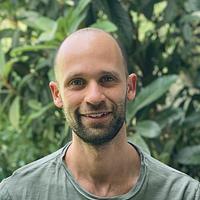- Orientation
- BizPlan
- BizPlan25
- Authentic Speaking
- Authentic Market Discovery
- Create Aligned Offers
- Joyful Productivity (Course)
- ✨ Authentic Outreach (AO)
- Joyful Pro
- Blog-to-Book
- 🚀 Course Creators
- 🖼️ Your Signature Framework
- 🙋 Effortless Yes
- 🌈 Energy Signature
- Meta Ads (FB / IG Advertising)
- 📱 Instagram Mastery
- 🎤️ Interview Mastery
- Launch Your Group Program
- Netcaring
- 🦸🏽✍🏽 Soulful Content (OGI)
- Substack Course
- "What do you do?"
- 🎬 YouTube Mastery

I’m Mike, originally from Australia I’ve been living in Israel for 10 years. I live with my partner and our two very young kiddies.
I’ve always been a peoples person. For me that means that I’m really interested in how we relate to one another. From a young age I was a sensitive boy and that hasn’t left me. I find myself naturally empathic, sometimes I find it difficult to consider and voice my own needs.
On one hand I see myself as an extrovert and love being around people and letting my personality come out. On the other hand I like quiet time alone and often feel shyness.
Professionally I’m a coach in Nonviolent Communication which is a way of relating to one another and ourselves with honesty and compassion. I find that this way of relating is the closest thing I’ve found to how I want to be in relationships with the world.
I’m Mike, originally from Australia I’ve been living in Israel for 10 years. I live with my partner and our two very young kiddies.
I’ve always been a peoples person. For me that means that I’m really interested in how we relate to one another. From a young age I was a sensitive boy and that hasn’…
